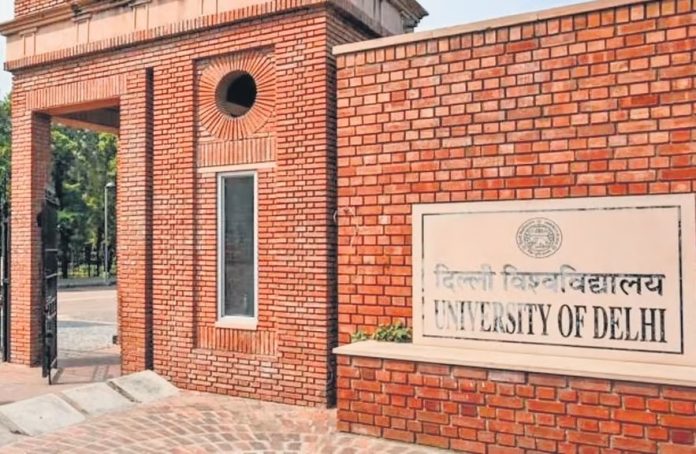– Abdul Bari Masoud
New Delhi: Several elected members of Delhi University’s Academic Council have strongly criticised a proposal to introduce four value-added courses centred on the Hindu scripture Bhagavad Gita. The proposal, submitted for approval by the university’s Value Addition Committee, has sparked widespread concerns, particularly regarding its implications for the university’s secular foundations.
The proposed courses – Gita for Holistic Life, Gita for Sustainable Universe, Gita: Navigating Life Challenges, and Leadership Excellence Through Gita – aim to explore the practical applications of the Gita’s teachings in various life contexts. These courses are designed to be accessible to all students, according to the proposal.
Another proposed course, An Introduction to Viksit Bharat, seeks to familiarise students with the concept of a “developed India,” a key campaign slogan of the BJP-led government.
However, the introduction of these Gita-based courses has raised questions about the university’s intent, particularly the decision to base four courses on a single religious text.
Dr. Monami Sinha, an elected Academic Council member, expressed concern over the implications of integrating religious texts into a curriculum at a university founded on secular principles. Speaking to Radiance, she emphasised that religious scriptures should only be included for critical analysis or mythological studies, not as a means to propagate religious ideologies or prescribe specific ways of life.
“The Bhagavad Gita is undoubtedly a profound philosophical text that individuals may turn to for personal guidance. However, privileging one religious scripture over others undermines the pluralistic and inclusive ethos essential to a secular educational institution,” Dr. Sinha stated.
She warned that such a move risks favouring one religious worldview, challenging the principles of equality and neutrality that are foundational to academia.
Echoing her concerns, Maya John, another Academic Council member, highlighted the potential drawbacks of the proposal.
“While the Bhagavad Gita is revered by many, offering multiple courses focused solely on this text limits students’ exposure to the diverse traditions of the Indian subcontinent. This could foster insular thinking and neglect engagement with other value systems,” said John, a professor at Jesus and Mary College.
John also said the Gita has been interpreted in widely differing ways, from Mahatma Gandhi to Nathuram Godse. “The University’s proposal overlooks the diversity of interpretations, which is essential for a comprehensive understanding of the text,” she added.
Rajesh Jha, a professor at Rajdhani College, criticised the university for not focusing on enhancing the quality of its existing Value Addition courses.
“Currently, students are only receiving two classes, which do not provide substantial learning opportunities. This proposal appears symbolic and fails to broaden students’ perspectives,” he said.




